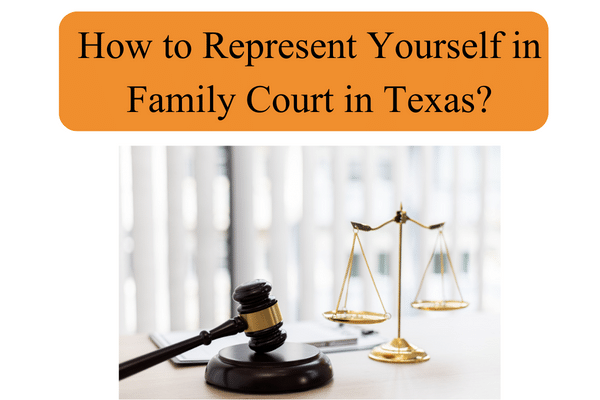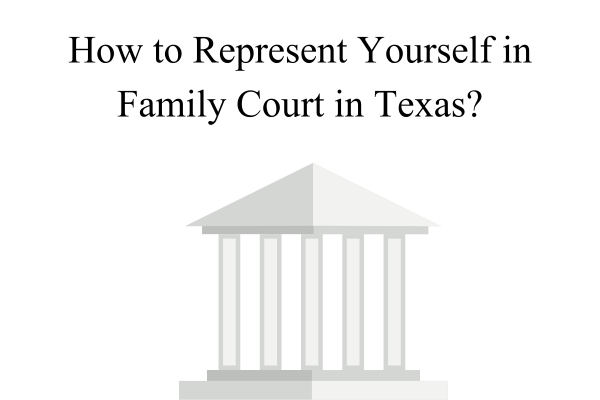How to Represent Yourself in Family Court in Texas?
Representing yourself in family court can be a daunting task, especially in Texas, where the legal system can be complex and overwhelming. Family court cases involve sensitive issues such as divorce, child custody, and support, making it crucial to navigate the legal process with care and understanding. This article aims to provide a comprehensive guide on how to represent yourself effectively in family court in Texas.
Understanding Family Court in Texas
Jurisdiction and Venue
Before delving into the specifics of representing yourself in family court, it’s essential to understand the basics of jurisdiction and venue. Jurisdiction determines which court has the authority to hear your case, while the venue determines the appropriate geographical location for the court proceedings.
Types of Family Court Cases
Family court in Texas deals with various types of cases, including divorce, child custody, child support, adoption, and domestic violence. Each case type has unique legal requirements, so it’s crucial to comprehend the specifics of your situation.
Importance of Legal Representation
While self-representation is an option, having legal representation is highly beneficial, especially in complex family court cases. An experienced attorney can provide valuable guidance, protect your rights, and navigate the intricacies of the legal system.
Preparing Your Case
Gathering Necessary Documents
One of the first steps in preparing your case is gathering all relevant documents, such as marriage certificates, financial records, and any evidence supporting your claims.
Seeking Legal Advice
Even if you choose to represent yourself, seeking legal advice from a family law attorney is advisable. They can offer insights into your case, explain legal procedures, and help you understand your rights.
Organizing Evidence
Properly organizing your evidence is crucial for a successful presentation in court. Arrange documents, photographs, and other evidence in a logical order to make it easier for the judge to follow your arguments.
Dressing and Conducting Yourself in Court
Dressing Appropriately
When appearing in family court, dressing in a respectful and conservative manner is essential. Wearing formal attire demonstrates seriousness and respect for the court.
Respecting Court Etiquette
Observe court etiquette by addressing the judge as “Your Honor,” waiting for your turn to speak, and refraining from interrupting others.
Communicating Clearly
Present your case and arguments in a clear and concise manner. Avoid using legal jargon and speak in a way that is easily understandable to the judge.
Presenting Your Case
Opening Statements
In family court, both parties have the opportunity to make opening statements. Use this time to provide an overview of your case and outline the main points you will be presenting.
Examination and Cross-Examination of Witnesses
If you have witnesses to support your case, prepare questions in advance for direct examination. Be ready for cross-examination, where the opposing party’s attorney may question your witnesses.
Presenting Evidence
Submit your evidence in a well-organized manner. Clearly explain the relevance of each piece of evidence to your case.
Making Closing Statements
During closing statements, summarize the main arguments and evidence presented in your case. Restate your position and the relief you are seeking from the court.
Handling Cross-Examination
Staying Calm and Focused
Cross-examination can be challenging, as the opposing attorney may attempt to undermine your credibility. Stay calm and composed while answering questions truthfully and succinctly.
Answering Truthfully and Concisely
Avoid volunteering information beyond the scope of the question. Answer only what is asked, and avoid elaborating unnecessarily.
Understanding Court Orders and Decisions
Temporary Orders
In some family court cases, the judge may issue temporary orders to address urgent matters before the final decision is made. Understand the implications of these orders and comply with them.
Final Orders
After considering all evidence and arguments, the judge will issue a final order, resolving the issues in your case. Comply with the final order to avoid legal consequences.
Appealing a Court Decision
Grounds for Appeal
If you disagree with the court’s final decision, you may have grounds to appeal. Common grounds for appeal include errors in law or procedure that significantly impacted the outcome of your case.
The Appeals Process
The appeals process involves filing a notice of appeal, presenting written arguments, and attending appeals hearing. It is essential to follow specific timelines and procedures during this process.
Alternative Dispute Resolution
Mediation
Mediation is an alternative to traditional litigation where a neutral third party assists the parties in reaching a mutually acceptable agreement.
Collaborative Law
Collaborative law involves both parties and their attorneys working together to find solutions without going to court.
The Importance of Child Custody and Support
Best Interests of the Child
In child custody cases, the court considers the best interests of the child when making decisions.
Child Support Guidelines
Understanding child support guidelines is crucial for both custodial and non-custodial parents.
Protecting Yourself from Domestic Violence
Obtaining a Protective Order
If you are a victim of domestic violence, you can seek a protective order to ensure your safety.
Reporting Domestic Abuse
Reporting domestic abuse to the authorities is essential for your protection and the safety of others.
Representing Yourself vs. Hiring an Attorney
Pros and Cons of Self-Representation
Deciding whether to represent yourself or hire an attorney involves considering the advantages and disadvantages of each option.
Benefits of Hiring an Attorney
An attorney can provide legal expertise, negotiate on your behalf, and navigate the complexities of the legal system.
Tips for Self-Representation Success
Being Prepared
Thoroughly prepare your case, know the relevant laws, and be ready to present your arguments effectively.
Staying Organized
Keep all documents and evidence organized to present them coherently in court.
Seeking Support from Family and Friends
Emotional support from family and friends can be valuable during the legal process.
FAQs:
- Can I represent myself in family court in Texas?
- Yes, you have the right to represent yourself, but it’s advisable to seek legal advice, especially in complex cases.
- What should I wear to court?
- Dress in formal and respectful attire, such as business attire.
- Can I appeal a family court decision in Texas?
- Yes, you may appeal a final court decision under certain circumstances.
- How long does the appeals process take?
- The appeals process duration varies, but it can take several months to a year.
- Is mediation mandatory in Texas family court cases?
- Mediation is often encouraged but not always mandatory, depending on the court and the specific case.
Conclusion:
Representing yourself in family court in Texas is challenging but possible with the right preparation and knowledge. Understanding the legal process, presenting your case effectively, and considering alternative dispute resolution methods can contribute to a successful outcome. However, seeking legal advice and representation is highly recommended for complex cases to protect your rights and interests fully.
Visit the link to read more: https://family-fitness-fun.com/how-to-hire-a-family-lawyer/





